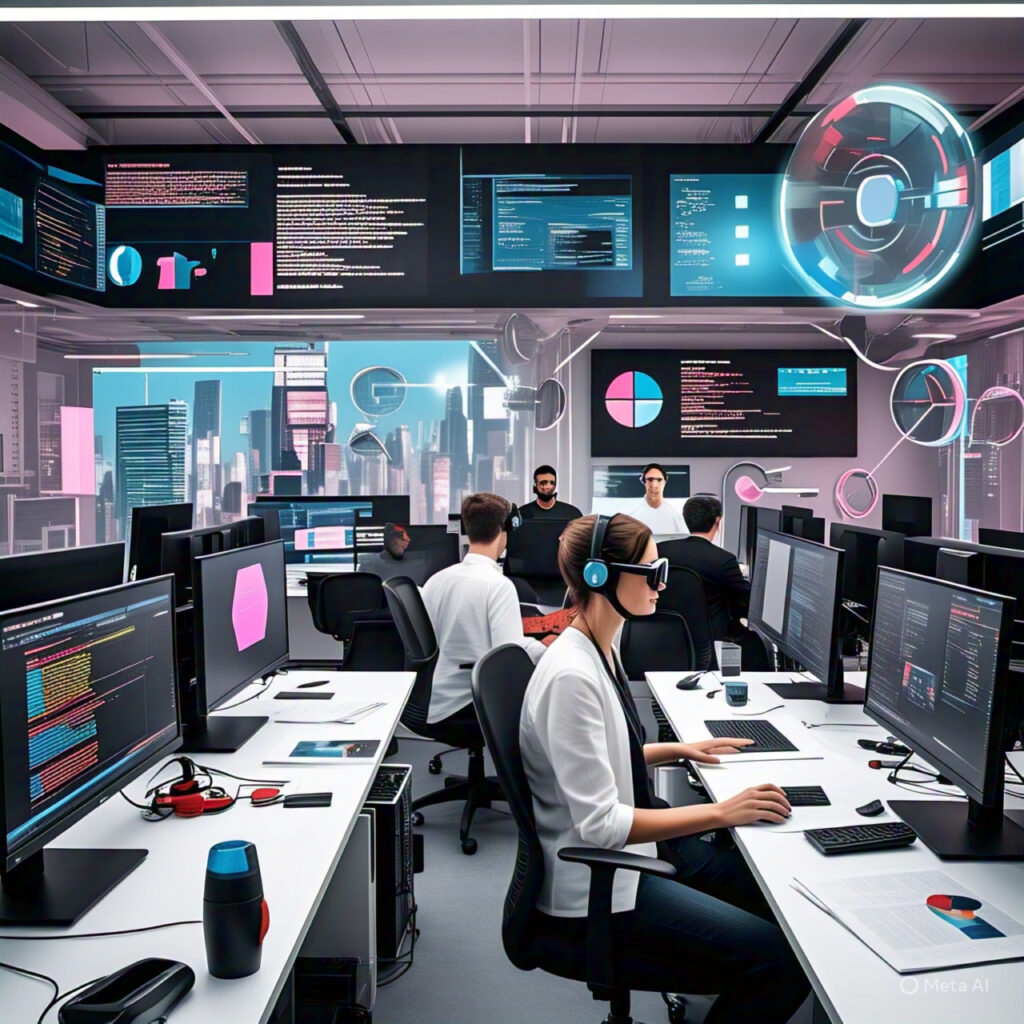The Rise of AI in Digital Marketing

Artificial Intelligence (AI) has progressed from a science fiction phenomenon to a central element of contemporary online marketing strategies. Companies from all industries are using AI to establish a competitive advantage through increased efficiency, accurate targeting, and greater customer interaction. AI’s capacity to process enormous volumes of data in real-time makes hyper-personalized marketing at scale possible, with brands having the capability to serve up custom content, product recommendations, and dynamic ads that speak to individual consumers. Netflix and Amazon have paved the way by leveraging AI-based personalization to dramatically increase engagement and sales, demonstrating the technology’s revolutionizing power.
One of the most apparent uses of AI in marketing comes in the form of chatbots and virtual assistants. Solutions such as ChatGPT, Drift, and Intercom offer real-time, 24/7 customer support, cutting response times dramatically and enhancing user experience. These AI tools are even capable of reading customer sentiment, enabling businesses to escalate problems where needed and keep satisfaction high. Aside from customer service, AI is transforming decision-making via predictive analytics. Software like Google Analytics 4 and HubSpot examine past data to predict trends, anticipate customer churn, and maximize campaign performance, enabling marketers to budget more efficiently and prevent wasted expenditure.
AI has also revolutionized programmatic ads, with tools like Google Ads and Meta’s Advantage+ doing the ad buying automatically to reach the appropriate audiences at the best times. These systems modify bids in real-time using performance data to guarantee maximum return on investment. Simultaneously, AI content creation tools such as ChatGPT, Jasper, and Gemini are helping marketers craft blog structures, social media posts, and advertisement copy at record speeds. But while productivity increases with these tools, human touch is still critical to preserve brand authenticity and prevent generic messaging.
Increased use of voice and visual search is one more category in which AI is leaving a mark. While people increasingly employ voice assistants such as Alexa and Siri, or image-based searching systems such as Google Lens, search engine optimization strategy needs to accommodate natural language query and picture search. Artificial intelligence is also taking a central part in creative activities, with technology such as Midjourney and DALL·E allowing the creation of original images for advertising and social media campaigns.
With its numerous benefits, AI marketing is not without problems. Data privacy is still an issue, and laws such as GDPR and CCPA mandate companies to treat customers’ data ethically. Heavy dependence on automation also threatens to drive audiences away if interactions grow too impersonal, and bias in AI-driven algorithms needs close monitoring to achieve equitable and representative marketing.
For companies willing to incorporate AI into marketing, the most important thing is to begin small and scale up deliberately. Testing out AI content tools, chatbots for customer service, and using predictive analytics to target advertising are realistic first steps. Keeping current with advances in AI is every bit as vital, since the technology is changing fast. Ultimately, AI is not replacing marketers but empowering them to work smarter, enabling data-driven decisions and more impactful campaigns. Brands that embrace AI now will be well-positioned to lead in 2024 and beyond, delivering personalized, efficient, and innovative marketing experiences that set them apart from the competition.